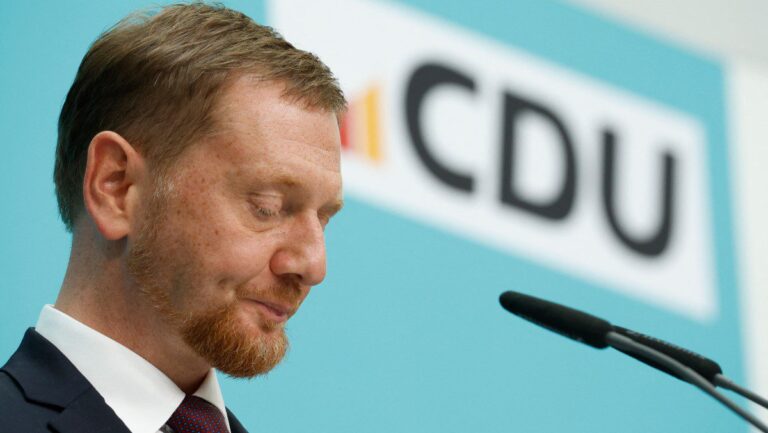Azerbaijan has been denounced for its aggression against Armenia by several countries, such as Greece, France, and the United States. Meanwhile, Germany tip-toes around the issue of blame. Such a diplomatic stance not only leaves the repeatedly persecuted Christians of Armenia at the mercy of their hostile neighbors but also raises the question of whether European gas reliance on Azerbaijan has muzzled German leadership.
Two months ago, on July 18th, President of the European Commission Ursula von der Leyen announced on Twitter an agreement to expand gas deliveries from Azerbaijan. In a bid to gain energy independence from Russia, von der Leyen stated, “the EU is turning to trustworthy energy suppliers. Azerbaijan is one of them.”
The EU is turning to trustworthy energy suppliers.
— Ursula von der Leyen (@vonderleyen) July 18, 2022
Azerbaijan is one of them.
With today's agreement, we commit to expanding the Southern Gas Corridor, to double gas supplies from Azerbaijan to the EU.
This is good news for our supplies of gas this winter and beyond. pic.twitter.com/j1sVcv10z6
It is noteworthy that while the Greek MEP Emmanouil Fragkos condemned the attack on Armenia in a daring and clear video message—in which he called for immediate sanctions against Azerbaijan and solidarity with Armenia—the German foreign ministry released no statement on the matter, even two days after the attacks, all of which were directed at Armenian targets.
What’s unusual about this hesitancy is that German Foreign Minister Annalena Baerbock is quite outspoken in her support for the underdog in the Russian-Ukrainian conflict. She has openly stated her willingness to pursue a political path to support Ukraine, even if her voters were opposed to it. On February 24th, the day of the Russian invasion of Ukraine, Baerbock released a first statement condemning the attack already at 7:08 in the morning. Her statement left no doubt about her position, putting full responsibility for the escalation squarely at the feet of Russia while proclaiming her “full solidarity with Ukraine.”
Mit dem Angriff auf die #Ukraine bricht #Russland mit den elementarsten Regeln der internationalen Ordnung. Die Weltgemeinschaft wird Russland diesen Tag der Schande nicht vergessen. Wir werden gemeinsam mit unseren Partnern reagieren. Unsere ganze Solidarität gilt der Ukraine.
— Außenministerin Annalena Baerbock (@ABaerbock) February 24, 2022
In other instances of aggression, Baerbock has been quick and fiery in expressing her condemnation also. This time, however, silence. Baerbock hasn’t commented on the outbreak of hostilities in Armenia at all; requests for a statement of the foreign office by Tichys Einblick have remained unanswered. What’s even more remarkable is the fact that Baerbock met with the foreign minister of Georgia, Ilia Darchiashvili, on the day hostilities broke out. Georgia is a neighbor to both Armenia and Azerbaijan—the opportunity was presented to her to at least voice her concern and position herself in a conflict that isn’t nearly as mysterious as the German foreign ministry pretends it to be.
Nur weil Aserbaidschan am Dienstag Armenien angegriffen hat, kann die Bundesregierung noch keinen Aggressor zwischen den beiden Staaten ausmachen. Das @AuswaertigesAmt hält die Frage nach dem Angreifer noch für offen. Dafür fehle es an "unabhängigen Beobachtern" vor Ort. pic.twitter.com/4nFUrPe3dF
— Tilo Jung (@TiloJung) September 14, 2022
In a press conference on Wednesday, September 14th, journalists finally had an opportunity to confront officials directly. The press secretary of the foreign ministry, Christian Wagner, said that “the German government is deeply concerned about the hostilities along the Armenian-Azerbaijanian border, which include attacks on civil infrastructure and settlements. We urge Azerbaijan and Armenia to immediately cease all hostilities that may threaten the security between both countries and the region. We ask both countries to continue the dialogue.”
When asked whether the German government could pinpoint who the aggressor in this conflict is, Wagner added:
The reports from both sides cannot be verified due to the lack of independent observers in the region, therefore I cannot say anything more on this matter right now.
Reporters then pointed to a variety of independent reports that confirmed Azerbaijan as the aggressor. They also recalled for the German press secretary that officials didn’t ask both sides to cease hostilities when Russia invaded Ukraine. Asked why the government opted for this stance now, Wagner answered:
I can only point to what I’ve just said, that in the absence of independent international observers on location, we cannot check the validity of these claims independently. I also don’t think it’s a good look to compare this conflict with what happened in Ukraine. Russia invaded Ukraine in violation of international law, and I, at least, wouldn’t want to draw parallels here.
Steffen Hebestreit, the spokesman for the German government, also took questions at the press conference. When asked whether Azerbaijan would still be considered a ‘reliable partner’ following the attacks Hebestreit dodged, and using Wagner’s words, had “nothing to add.” Asked how long it would take for the government to assess the situation, Hebestreit’s response was just as unsatisfying: “You will see. When we have come to an assessment, we will present it here.”
At the time of the press conference, some sources reported that Azerbaijani forces had advanced as far as five miles into Armenia.
This newly discovered carefulness of German foreign policy has damaged its credibility. For while the German foreign office had Russian President Vladimir Putin’s ambitions and interests in Ukraine on its radar a long time ago, one might argue that the anything-but-recent, bellicose statements of the president of Azerbaijan, Ilham Aliyev, would have justified similar scrutiny.
Armenia is not even a colony, it is not even worthy of being a servant.
— Ilham Aliyev (@presidentaz) January 29, 2015
Armenia is still scrambling for solidarity from the Christian nations of the West, and it remains unclear to what extent Russia will be able to protect Armenia. Meanwhile, Azerbaijan knows it can count on the unconditional support of Turkey, as announced by the Turkish Vice President Fuat Oktay on September 15th.





